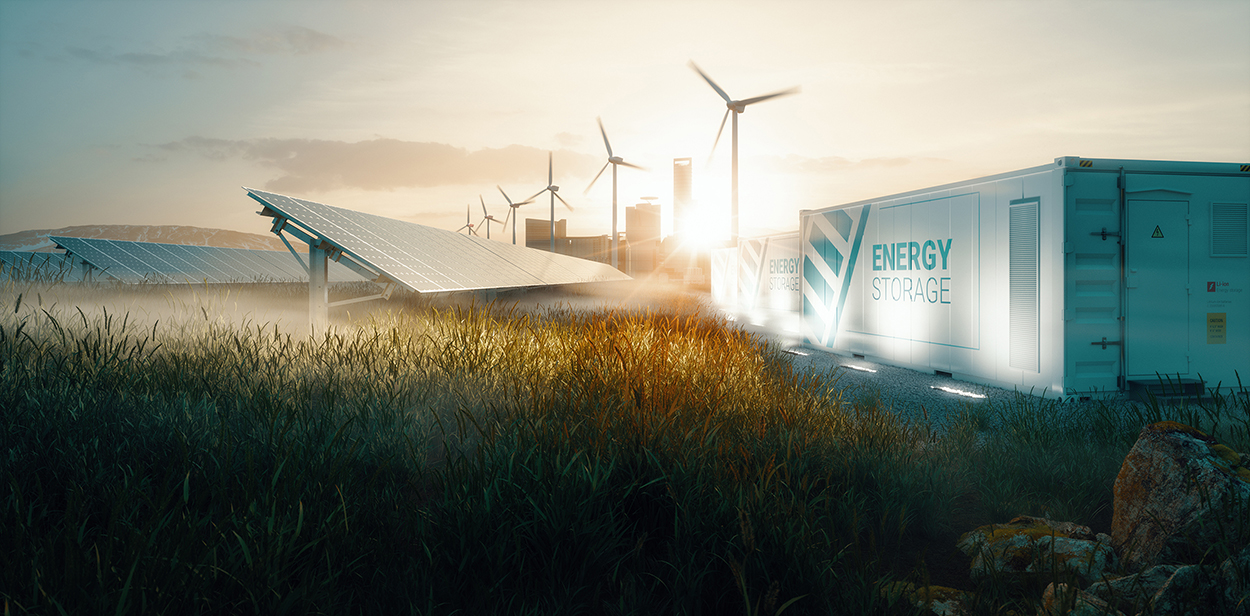
Energy storage
Storage systems play an important role in today’s energy system, regardless of whether electricity, heat or gas is stored. Storage facilities increase flexibility, particularly in the case of an energy supply based on piped systems. In particular, the use of storage decouples generation and consumption and makes a significant contribution to the energy transition. Storage facilities can also be used for multi-use cases due to their ability to regulate both feed-in and feed-out.
In the area of electricity storage, a large number of legal questions are currently still unresolved. The Energy Industry Act (EnWG) and the Renewable Energy Sources Act (EEG) as well as the ordinances based on them, such as the Electricity Grid Charges Ordinance (StromNEV) or the Electricity Grid Access Ordinance (StromNZV), do not contain clear regulations or a coordinated system for electricity storage. The new regulations for self-supply from electricity storage in the Renewable Energy Sources Act (EEG) also currently contain a large number of ambiguities. In addition, there are different regulations to be observed, which have been specified by the Federal Network Agency and increasingly by European network codes for the provision of balancing energy (primary balancing power (PRL for short), secondary balancing power (SRL for short) and minute reserve (MRL for short)). Gas storage facilities are also subject to comparable provisions of the EnWG, with long-term gas supply contracts and balancing group contracts regularly being the subject of legal advice in legal practice.
The integration of heat storage systems into local or district heating networks and in combination with different generation systems (e.g. solar thermal or combined heat and power) is also influenced by legislation. In addition to the connection of the heat storage unit, the subsidy conditions according to the Combined Heat and Power Act (KWKG) or the requirements for heat supply – if not only the provision of capacities – of the District Heating Ordinance (AVBFernwärmeV) are the subject of legal advice.
Our consulting services //
- Preparation of decision-making bases, especially in connection with the regulatory framework, also due to European legal developments
- Development of the necessary contractual basis for the planning, construction and operation of the storage facilities (licence agreements, grid connection agreements, marketing agreements)
- Advice in connection with different marketing possibilities of flexibility
- Monitoring of the financing
- Issues relating to grid connection, integration into customer systems and closed distribution grids
- In addition, any obstacles and claims against third parties, e.g. grid operators, transmission system operators, suppliers, etc. are represented out of court (also before the EEG KWKG Clearing House or the BNetzA) and in court
Our clients //
- Storage operator
- Technology manufacturer
- Project developer
- Energy traders and energy supply companies
- System integrators
- Craft enterprises
- Housing associations
- Testing and certification company
- Institutions from research and development



